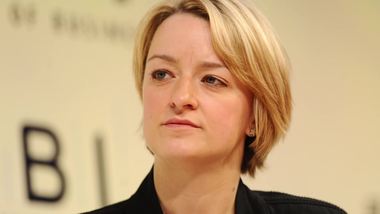
Introduction
Laura Kuenssberg, the first female political editor of the BBC, has become a significant figure in British journalism, particularly in the realm of political reporting. Her coverage of current affairs has not only shaped public discourse but has also influenced how news is delivered and consumed in the UK. In recent events, Kuenssberg has continued to lead the way in journalistic integrity and political analysis, making her an indispensable voice in this tumultuous political landscape.
Recent Developments
Kuenssberg recently returned to the spotlight following the announcement of her new Sunday morning political show, which aims to address the pressing issues facing the nation. With the UK still navigating the complexities of Brexit, the energy crisis, and various economic challenges, her insights are more relevant than ever. Her ability to dissect political narratives and present them in an engaging manner makes her programme a must-watch for those wanting to understand the intricacies of UK politics.
During an interview with Prime Minister Rishi Sunak, which aired on her show, Kuenssberg posed pointed questions about the government’s plans for economic recovery and public health post-pandemic. The interview was praised for its depth and for holding the Prime Minister accountable, showcasing her skill in direct, no-nonsense questioning that remains a hallmark of her style.
Influence and Analysis
Kuenssberg’s journey in journalism began with her work for local newspapers and gradually progressed to prominent national roles, eventually joining the BBC as a political correspondent. Her rise to prominence embodies a transformation in media coverage, particularly regarding women’s roles in journalism. As the political landscape becomes increasingly contentious, her influence provides a refreshing perspective. Many view her as a role model for aspiring journalists, particularly women who want to enter the field of political reporting.
However, her tenure has not been without controversy. Kuenssberg has faced criticism from various political factions, often due to her reporting style, which some perceive as biased. Despite this, she maintains a significant following and respect within the industry, indicating the complexity and nuances involved in powerful journalism.
Conclusion
Laura Kuenssberg’s contributions to journalism are undeniable, as she continues to navigate the rapidly changing media environment with astuteness and skill. Her upcoming projects and ongoing analyses of current events will continue to shed light on important issues, engaging viewers and contributing to an informed public. As UK politics evolves, so too will Kuenssberg’s role in shaping how these developments are reported and understood by the masses. For readers and viewers, her work serves as a critical resource in making sense of an increasingly complex political landscape.
You may also like

Understanding CBBC: A Gateway to Children’s Entertainment

Dasha Burns: A Promising Voice in Modern Journalism

Ruth Dodsworth: Overcoming Adversity and Inspiring Change
SEARCH
LAST NEWS
- Remembering Wendy Richard: The Promise to Co-Star Natalie Cassidy
- How Did Anglian Water Achieve an ‘Essentials’ Rating for Mental Health Accessibility?
- Shai Hope Leads West Indies in T20 World Cup Clash Against South Africa
- What We Know About Weston McKennie: Future at Juventus and Past at Leeds
- What We Know About the Upcoming Live Nation Antitrust Trial